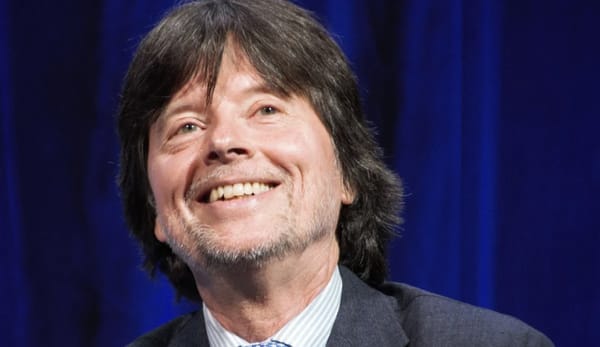An Interview with Ken Burns: “The American Revolution” Airs November 16 on PBS
The acclaimed documentarian talks with us about his latest 12 hour, six part feature.

The acclaimed documentarian talks with us about his latest 12 hour, six part feature.

Director Ken Burns is well known for his often-multipart PBS films about varied segments of the ongoing history of America, the struggles and creations that define the country as a singular phenomenon. The Civil War, jazz, baseball, US national parks, country music, the Lewis and Clark expedition, radio, prohibition, the Shakers, the Central Park Five, Huey Long, the Roosevelts, Muhammad Ali, and America’s role in World War II and relationship to the Holocaust are some of the many subjects Burns and his team have examined and brought to life on the screen, zeroing in on the individual experiences that are often lost amid the sweeping events and innovations that surround the people within them. For his latest opus, the six-part, twelve-hour The American Revolution, which will premiere on November 16 on PBS, television’s foremost documentarian has gone back to the very origins of the nation that backgrounds his prior efforts.
“We began working on [the documentary series] in 2015,” says Burns, who produced The American Revolution with Sarah Botstein and David Schmidt, by phone. “But at the time we were also working on [2017’s 10-part] The Vietnam War, and we decided to finish that project first. With history there can be a sense of its being barnacle-encrusted nostalgia, of things being distant and preserved in amber. But, really, they’re not; human nature doesn’t change. For instance, during the Revolutionary era there was a pandemic, there was an eclipse, and there was intense division between the people living in America. In the film we feature a letter from a German officer that mentions how he’d heard that colonists were ‘eating the cats.’ Like Mark Twain [another Burns series subject] said, ‘History doesn’t repeat itself, but it often rhymes.’”
Born in Brooklyn to academic parents and raised in France, Delaware, and Michigan, Burns, who attended Hampshire College in Amherst, Massachusetts, lost his mother to breast cancer when he was 11; his psychologist uncle would later observe “that all of my work is an attempt to make people who are long gone come back to life.” In 1977 he started making his first documentary, 1988’s Brooklyn Bridge, which is based on David McCulloch’s book about the New York landmark. The American Revolution is Burns’s 27th film.
“The Revolutionary War was a very complicated, bloody, hard war that lasted for eight years and turned the world upside down,” says codirector Sarah Botstein, the daughter of Bard College President Leon Botstein. “It was a throwing-off of monarchy, a global and deeply local civil war with a messy story. It wasn’t just the patriots against the British. It was patriots against loyalists, neighbor against neighbor, family against family.”
One of Burns’s staple filmic methods involves the use of period photographs, a technique obviously not possible with the topic of The American Revolution. Instead, the documentary, with a script by historian and long-time Burns collaborator Geoffrey C. Ward, utilizes original footage of North America’s beautiful, diverse landscape and contemporary letters and writings to vividly convey the struggles of those who were caught up in this pivotal, challenging epoch of world history. “We always try to tell the story from the bottom up with our films,” explains Burns. “In this one we don’t just try to give dimension to the well-known names; we highlight the real voices of the regular soldiers, women, native people, freed and enslaved people, immigrants, and Europeans that are also part of the story.”
The broadcast comes in the wake of the Trump-led defunding of the Corporation for Public Broadcasting, which, as the financial backer of PBS, produces not only educational films like Burns’s, but also such vital American staples as “Sesame Street,” “Nova,” “Frontline,” and “The PBS News Hour.” Yet according to Burns a year before America’s 250th anniversary, the level of deep political division that currently grips the country and led to CPBS’s impending closure is nothing new. “I’m mainly worried about how this will affect rural stations, whose areas could now lose their emergency alert systems and classroom programming,” says the filmmaker during a break from his schedule of calling congressional representatives on behalf of the organization. “But if you think America is divided now, you have no idea how divided it was at the time of the Revolution. I hope that watching [the documentary] helps put the ‘us’ back in ‘U.S’.”
The American Revolution will premiere on PBS starting on November 16. Check local listings or the PBS website for airing times.